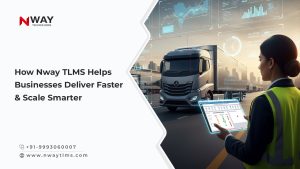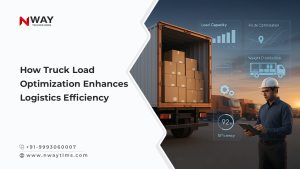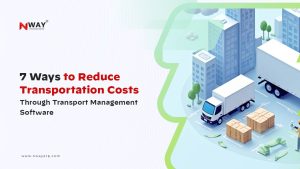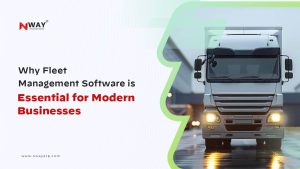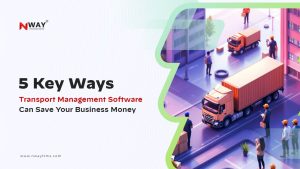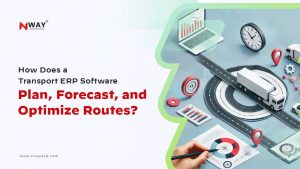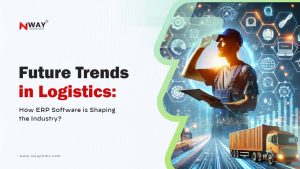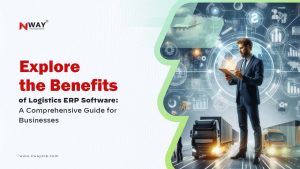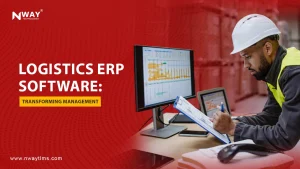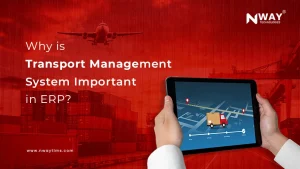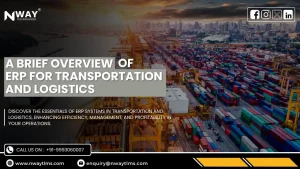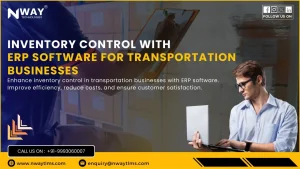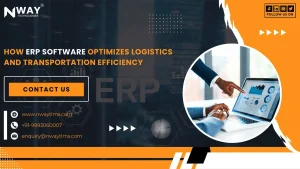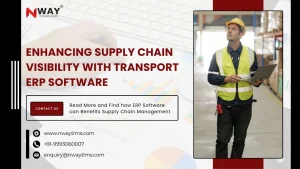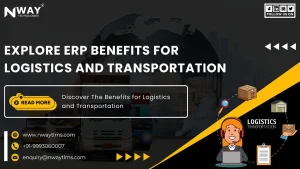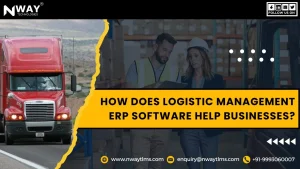Why is Transport Management System Important in ERP
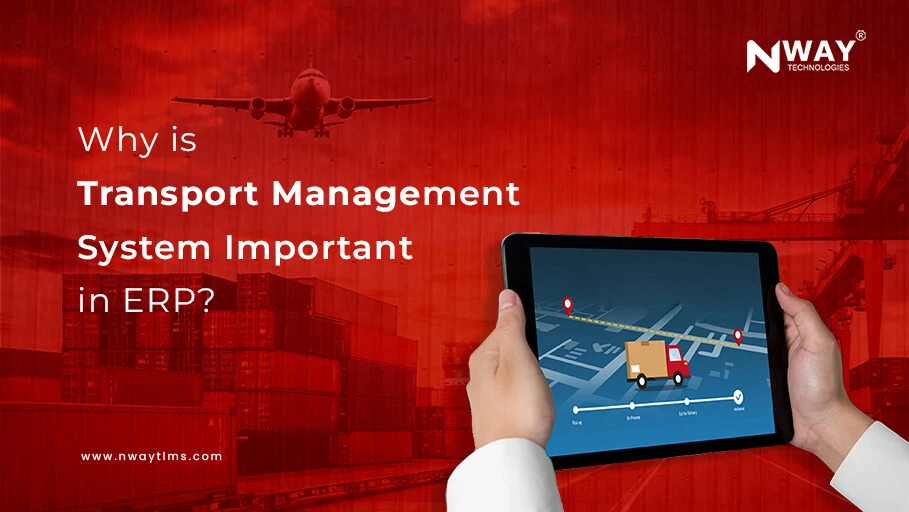
In the current interconnected business world, companies face a variety of problems with managing their supply chain effectively. One of the most important elements of a successful supply chain is a transport management system (TMS). The Transport Management System is a component of the larger Enterprise Resource Planning (ERP) system. It is a key element in streamlining the transportation process in reducing cost as well as improving efficiency overall. This article will discuss the role of an ERP's Transport Management System within an ERP by examining its strengths as well as its functionalities and impacts on operations of businesses.
Understanding Transport Management System (TMS)
Definition and Scope
The Transport Management System (TMS) is a solution for software that is designed to control the management, scheduling and optimization of transportation of products. It's a crucial component for supply chain management as well as logistics. It offers options like routing planning, selection of carriers, the auditing of freight, as well as live tracking.
Key Functionalities
- Routing Planning and Optimization: TMS assists in determining the most efficient route for transportation by considering parameters such as distance, traffic, fuel costs, and delivery schedule.
- Carrier Management: It helps you choose the best carriers based on price, service level, and service quality. It also ensures that deliveries arrive on time.
- Freight Audit and Payment: TMS facilitates the process of analyzing freight invoices, detecting problems and coordinating transactions.
- Load Planning: It maximizes load consolidation and guarantees that transportation resources are used as efficiently as possible.
- Real-Time Tracking: Provides visibility into merchandise flow, allowing for real-time monitoring and adjustments.
Integration of TMS to ERP
Seamless Data Flow
The Integration of an ERP solution facilitates the smooth flow of data across various business operations. The integration enables information exchange throughout departments such as sales, procurement, finance, logistics, and procurement, which improves collaboration and decision-making.
Improved Supply Chain Visibility
A TMS integrated into an ERP offers end-to-end visibility across the entire supply chain. The business can track their orders from their beginning point up to their final destination. They can check inventory levels, as well as receive updates in real time about the status of shipments. This transparency improves the efficiency of their operations and improves customer satisfaction.
Enhanced Customer Service
When a TMS is integrated with an ERP system, businesses can offer accurate and current data to their clients regarding the contents of their shipment. Continuous tracking in real-time and proactive communication assist in controlling expectations of customers as well as improving the quality of service.
Benefits of TMS in ERP
Cost Reduction
One of the main benefits of having TMS into an ERP is the reduction in costs. Utilizing optimized routes, identifying the most efficient carriers as well as enhancing load scheduling firms can dramatically cut transport costs. In addition, automating the process of auditing freight and payment processing reduces mistakes and decreases administrative costs.
Increased Operational Efficiency
A TMS simplifies the transportation process by minimizing manual intervention and increasing efficiency. Automated routes load optimization, load planning, and real-time tracking aid to reduce delays while increasing the overall efficiency.
Better Decision-Making
By integrating data from several departments, organizations can make well-informed decisions about logistics and transportation. Tools for reporting and analytics in the TMS offer valuable insight about the efficiency of transportation. They can assist to identify areas that need improvement and then implement the corrective measures.
Scalability and Flexibility
An ERP's TMS can scale and adjust to changing requirements of businesses. When a company expands its business or expands its offerings or expands its product range, the TMS will be able to handle the increased transport needs and adapt to any new demands of the business.
Compliance and Risk Management
Transportation entails complying with many regulations as well as controlling the risk connected with the transfer of products. TMS is a tool for ensuring regulatory compliance, document management, and risk management through the implementation of strong tracking and monitoring systems.
Real-World Applications
Manufacturing Industry
For manufacturing the timely supply of the raw materials and final goods is essential to maintain the production schedules. The use of a TMS that is integrated with an ERP system will ensure that the materials arrive on schedule, thus reducing downtime in production as well as increasing efficiency overall.
Retail and E-commerce
In the world of retail and online commerce, meeting the expectations of customers regarding delivery is essential. The integrated TMS can facilitate rapid order fulfillment, live tracking of the shipment, as well as accurate estimation of delivery times, which improves customers' trust and satisfaction.
Third-Party Logistics (3PL) Providers
3PL companies manage transport and logistics for their customers. A TMS integrated into an ERP assists 3PL suppliers optimize routes, control multiple clients with shipments and give an immediate view of the supply chain. This improves quality of service and efficiency.
Healthcare and Pharmaceuticals
For the pharmaceutical and medical industries, rapid and secure distribution of medicines is crucial. TMS TMS assures that delicate goods can be transported in safe circumstances, ensuring product integrity as well as ensuring compliance with regulations.
Challenges and Considerations
Implementation Costs
Integrating a TMS into an ERP program can be an investment of a substantial amount. It is important to think about the cost of purchasing, integration, and even training. But, the benefits over time from cost reductions and efficiency in operations often surpass the initial cost.
Change Management
The integration of an TMS to an ERP system will require modifications to existing processes and workflows. The use of effective change management techniques is crucial to facilitate smooth implementation and user acceptance. The training and support provided to employees is a key factor in the process of transition.
Data Security and Privacy
Due to the increasing movement of information across a company, protecting data as well as privacy is crucial. Companies must implement strong security measures to safeguard the sensitive data and adhere to the regulations on data protection.
Future Trends
Artificial Intelligence and Machine Learning
The incorporation with artificial intelligence (AI) as well as machine-learning (ML) into the TMS system is expected to transform transportation management. AI as well as ML will enhance the efficiency of route planning, optimization of demand and maintenance prediction, increasing efficiency while reducing expenses.
Internet of Things (IoT)
The Internet of Things (IoT) provides real-time tracking and surveillance of shipments via devices connected to. IoT connectivity with TMS gives valuable information about the conditions of the shipment, its location and status. This improves awareness and control of your supply chain.
Blockchain Technology
Blockchain technology provides the security and transparency of tracking movements of goods. Combining blockchain and TMS will increase confidence and transparency throughout the supply chain making it less likely for fraud to occur and guaranteeing the integrity of transactions.
Sustainability and Green Logistics
As sustainability is becoming more important, TMS solutions are focusing on sustainable logistics practices. The optimization of route loading consolidation, route optimization, and effective carrier selection all aid in the reduction of carbon emissions as well as encouraging environmentally sustainable transport.
Strategies for Successful TMS Integration in ERP
Assessing Business Needs
Prior to integrating a TMS into ERP, organizations should conduct an extensive assessment of their transport and logistics requirements. Recognizing the particular requirements, issues and objectives will assist to select the ideal TMS solution, and ensure the success of deployment.
Choosing the Right TMS Solution
Choosing the best TMS choice is vital to getting the desired results. Companies should take into consideration factors including scalability and adaptability, flexibility as well as support from the vendor. Examining a variety of options, and conducting trials or demos could help in making an educated decision.
Ensuring Employee Training and Engagement
The successful integration of TMS into ERP systems demands active participation in training and education of employees. Offering comprehensive training and involving participants in the process will improve user engagement and decrease resistance to changes. Making sure that employees are aware of the features and benefits of the TMS will lead to smoother processes and a more efficient use of the software.
Monitoring and Continuous Improvement
After implementation, it's crucial to continuously monitor the performance that is being delivered by the TMS and adjust it as needed. Monitoring the metrics of transportation regularly and gathering user feedback as well as keeping abreast of technology advancements will drive constant advancement. Companies should be ready to adjust and enhance their strategies for TMS to accommodate changing demands and improve effectiveness of their transportation.
READ MORE : A Brief Overview of ERP for Transportation and Logistics
Conclusion
The Transport Management System is an essential component of an ERP system that provides a variety of benefits to improve efficiency in transportation, decrease costs and enhance the overall management of supply chains. When you integrate TMS together with ERP, firms can benefit from an uninterrupted flow of data, more efficient decision making and improved customer support. In spite of the difficulties associated in the process, the potential benefits make it an investment worth the investment. While technology advances, TMS solutions will become increasingly sophisticated, leading to more improvements in the management of transportation and enhancing the overall growth of businesses across various sectors.
The importance of having a Transport Management System within an ERP can't be understated. It's a potent instrument that allows businesses to deal with the challenges of modern supply chains and ensures timely and efficient delivery of products. When companies are trying to remain relevant in an ever-changing market by investing in a strong TMS, which is integrated into an ERP software will play a crucial role to achieving excellence in operations as well as the satisfaction of customers. By focusing on strategic planning, deployment, and continual enhancement, companies can tap the full power of TMS in order to improve productivity, lower costs and improve their overall availability.
Let’s make running your construction business a little less crazy.
Subscribe for weekly insights.
Recent Posts


